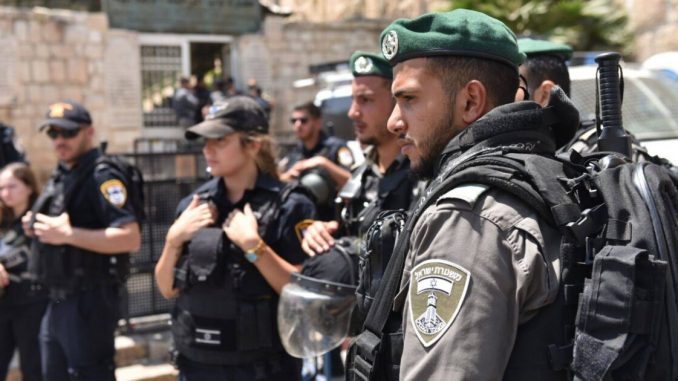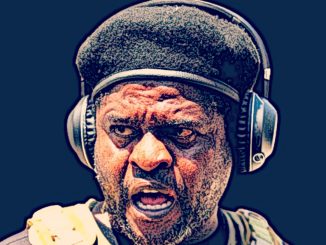
Israel Police, CC BY-SA 3.0 <https://creativecommons.org/licenses/by-sa/3.0>, via Wikimedia Commons
| Published August 7, 2025
In the heart of Israel, beyond the headlines of regional conflict and high-tech innovation, another battle is raging—one that is tearing through towns, overwhelming mayors, and leaving a trail of bodies in its wake. A stunning rise in crime has gripped Israel’s Arab community, propelling the country to a grim statistic: the third-highest murder rate among developed nations, behind only Mexico and Colombia.
This surge in violence, largely fueled by organized crime, internal feuds, and the proliferation of illegal weapons, has turned parts of Israel’s Arab sector into what some are now calling “lawless zones.” From extortion rings and contract killings to political threats and assassinations, Arab towns are experiencing a collapse of civil order, with devastating consequences for both their residents and the nation at large.
A Crisis in Numbers
The numbers are stark. According to data from advocacy group Abraham Initiatives, 244 Arab Israelis were murdered in 2023, marking the highest annual total on record—more than four times higher than the murder rate among Jewish Israelis. In 2024, over 100 murders were recorded, and 2025 is already on track to surpass both years, with nearly 100 killings by mid-year.
In some Arab towns, homicide rates now resemble those in conflict zones. The weapons used aren’t just pistols—they include military-grade rifles, grenades, and even rocket-propelled devices, according to reports by Israeli law enforcement and security think tanks.
Fear and Silence
Compounding the crisis is a pervasive culture of fear and distrust. Police solve only around 10% of murders in Arab areas, compared to over 80% in Jewish areas. The reasons are layered: under-policing, lack of trust, and a widespread fear of retaliation for cooperating with authorities.
“People are afraid to speak,” said one resident of Umm al-Fahm, a city plagued by gang warfare. “Even if you know who killed your son, you stay quiet—otherwise you’re next.”
Mayors, civil engineers, and local business owners are being targeted. Assassination attempts on public officials are now a regular feature in municipal life. Some city councils can barely operate due to gang interference, and public tenders are increasingly awarded through extortion rather than merit.
Criminal Networks, Weak State
Experts say much of the violence stems from clan-based crime families that have expanded rapidly over the past decade. These organizations now control drug trafficking, weapons smuggling, loan-sharking, and municipal corruption across dozens of Arab-majority towns.
But while the gangs are growing, the state’s response has been sporadic and short-lived. Several security initiatives—such as the Arab Community Security Headquarters and the “Safe Track” policing plan—were either canceled or defunded following changes in political leadership.
After months of rising public pressure, Prime Minister Benjamin Netanyahu in mid-2025 ordered a special ministerial committee and brought in Israel’s Shin Bet internal security agency to deal with the worst crime zones. But critics argue it may be too little, too late.
National Security at Risk
The implications of this internal breakdown are massive. What was once viewed as a policing challenge is now widely seen as a national security threat. With thousands of illegal firearms spread across Arab towns, some security officials warn that these areas could become internal flashpoints in the event of war or widespread civil unrest.
“In a future conflict with Iran or Hezbollah, these weapons could be turned inward,” said one former IDF general. “We are facing an internal front, armed and already activated.”
Communities Abandoned
Many Arab Israeli citizens say they feel abandoned by the state. At protest rallies and press conferences, Arab mayors have accused the government of deliberate neglect, claiming that authorities are willing to let Arab communities implode under the weight of violence and poverty.
In the words of Nazareth’s mayor: “If 244 Jewish Israelis were murdered in one year, there would be a national uproar. But when it happens to us, it’s met with silence—or worse, blame.”
What’s at Stake
This crisis transcends crime statistics. It strikes at the very foundation of Israel’s democracy and internal cohesion. It exposes the vulnerability of a divided society where parts of the population feel unprotected, unrepresented, and unsafe.
The road to recovery will require more than police raids and emergency meetings. It will demand long-term investment in Arab education, economic opportunity, municipal reform, and—most crucially—a rebuilding of trust between Arab citizens and the Israeli state.
Until then, families will continue to bury their dead. Communities will remain paralyzed by fear. And Israel will inch closer to a dangerous tipping point—where internal collapse becomes as threatening as any external enemy.
 Implications:
Implications:
The implications of skyrocketing crime in Israel’s Arab community are serious and multi-layered—affecting security, governance, economics, civil society, and national identity. Here’s a breakdown of the key implications:
🔐 1. National Security Threat
-
The sheer volume of illegal weapons and the presence of militarized crime groups in Arab towns mean these areas could become internal battlefields in the event of a larger conflict.
-
Intelligence experts warn that if Israel faces an external war (e.g., with Hezbollah or Iran), these internal criminal networks could be leveraged by enemies or act opportunistically in parallel.
-
The involvement of Shin Bet (domestic intelligence) signals that the state sees this as beyond normal law enforcement—a national emergency.
🏛️ 2. Erosion of Governance
-
Criminal organizations are taking over municipal functions: extorting local governments, threatening mayors, and influencing public contracts.
-
In some towns, local governments can no longer function independently—they’re operating under constant threat, weakening democratic accountability.
-
The rise of “mafia states within a state” creates lawless enclaves, undermining the rule of law.
📉 3. Economic Collapse in Affected Areas
-
Arab towns and cities are facing capital flight—businesses are shutting down or refusing to operate in high-crime zones.
-
Infrastructure development is slowed or abandoned due to safety risks for workers, contractors, and engineers.
-
Tax revenue from local commerce shrinks, which further reduces public services, creating a downward spiral of poverty and violence.
🧑🤝🧑 4. Deepening Arab-Jewish Divide
-
Israeli Jewish citizens may increasingly view Arab towns as hostile or lawless zones, reinforcing negative stereotypes and alienation.
-
Conversely, Arab citizens see the state as neglectful or complicit in allowing violence to thrive, fueling distrust and radicalization.
-
This exacerbates the social fragmentation of Israeli society and weakens internal unity.
🧨 5. Risk of Political Radicalization
-
Power vacuums created by crime can be filled not just by gangsters but also by extremists—Islamists or nationalists.
-
Criminal groups may partner with ideological actors to gain legitimacy or protection, potentially linking organized crime with anti-state movements.
-
This creates fertile ground for terror recruitment, civil unrest, and undermining of democratic institutions.
⚖️ 6. Legal and Constitutional Challenges
-
Calls to use counter-terrorism laws against criminal gangs raise civil liberty concerns. Will the state blur the line between criminality and dissent?
-
If Arab citizens feel unfairly targeted under security frameworks, it may increase tensions, legal challenges, and international criticism of Israel’s internal policies.
🧩 7. Long-Term Instability and Stagnation
-
Without decisive action, these areas may become permanent “grey zones”—neither fully governed nor fully integrated.
-
This would trap future generations of Arab Israelis in cycles of violence, poverty, and state neglect, destabilizing Israel’s long-term social fabric.
 Overall Takeaway:
Overall Takeaway:
The explosion of violence in Israel’s Arab communities is no longer just a local or minority issue—it has become a national emergency with far-reaching consequences. What began as unchecked organized crime has now evolved into a systemic threat that touches every level of Israeli society: law enforcement, local governance, national security, and social cohesion. The persistence of lawlessness not only endangers Arab citizens but also erodes the authority of the state, empowers violent actors, and deepens mistrust between communities.
Unless the government acts with urgency, clarity, and sustained commitment—combining intelligence, policing, economic support, and civil outreach—these crime-plagued areas risk becoming permanent zones of instability. Israel cannot afford to allow entire regions within its borders to descend into chaos. The choice is clear: restore order and rebuild trust, or face the growing reality of internal collapse.





Be the first to comment